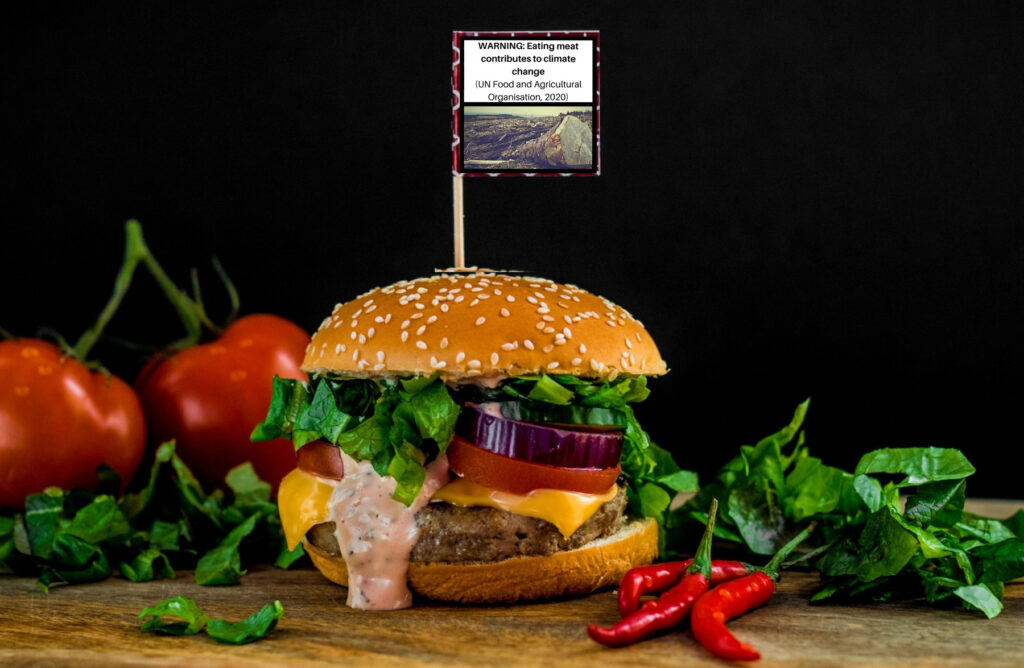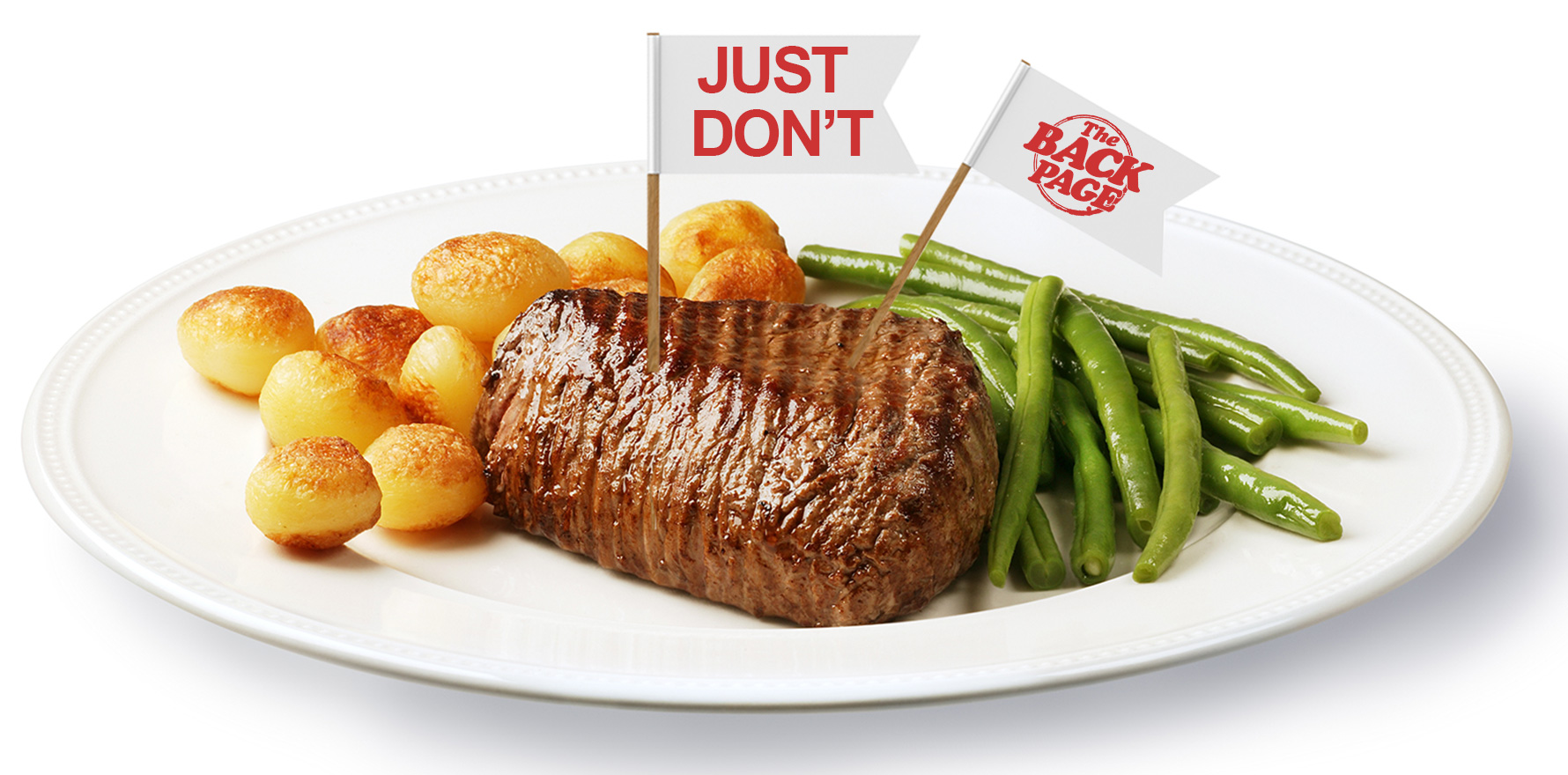Slapping warning labels on meat could reduce our intake, but it's hard to see restaurants playing along.
How would you like your steak frites, madam: with a topping of guilt about climate change, your poor health or pandemics?
With the livestock industry contributing up to 18% of anthropogenic greenhouse emissions, as well as widespread ill health from cancer, cardiovascular diseases, pollution and zoonotic diseases, there is an argument for sending meat down the same chute to social odium as cigarettes.
The authors of this paper, from the esteemed Durham University, set out to see whether warning labels would affect people’s choice of meal.
They randomised a sample of 1000 into a control group and three warning conditions.
They chose health, climate change and pandemics as their scares, leaving out animal welfare (they note that previous interventions had found animal welfare labels to be the least effective, tending to produce a boomerang effect in which people felt criticised and distanced themselves from the vegetarian cause).
While health warnings are well researched and ecolabelling evidence is limited, the authors say pandemic warnings are completely unresearched, the connection between livestock and zoonotic disease “largely underestimated and ignored”.
Subjects were asked to imagine themselves in a university dining hall for dinner and asked to choose from a meat, fish, vegetarian and vegan variant of the same meal – burger, pasta bake, pizza etc., 20 of them on the trot. (That in itself might do funny things to one’s appetite, but it certainly provides more data than just asking the once.)
Each meal option came with an image “of similar attractiveness”, and only the meat option bore one of the three labels, or none for controls.

The subjects were then given the image of a burger (with/without label) and asked to rate negative emotional arousal induced by the labels, label credibility, meal appeal, future intentions to purchase and consume such a meal and policy support for labelling.
All the warnings had a significant effect on meal choices compared with controls. The health warning label group were 8.8% less likely to choose meat, the climate group 7.4% and the pandemic group 10% (the differences among the three warning groups were non-significant).
The pandemic labels, interestingly, triggered stronger negative emotional arousal and were also seen as less credible than the other two. While subjects neither supported nor opposed climate warnings, they opposed the other two. The other secondary outcomes showed no significant differences among the three labels.
A serving suggestion for any restaurants wanting to get out in front of it:

It’s hard to envision the bistrôts of the world going along with this. The French, after all, were extremely reluctant to label their cigarettes with health warnings, deeming rotting lungs to be off brand for Gitanes and Gauloises (the Back Page’s father was a keen smoker of both those glamorous brands and was most irate when Australia stopped importing them for this reason), before they were eventually brought into line by the EU.
It may be easier to mandate that every steak cost $875 (gold leaf optional) if you really want to drive down consumption.
Send vegan story tips to penny@medicalrepublic.com.au.


